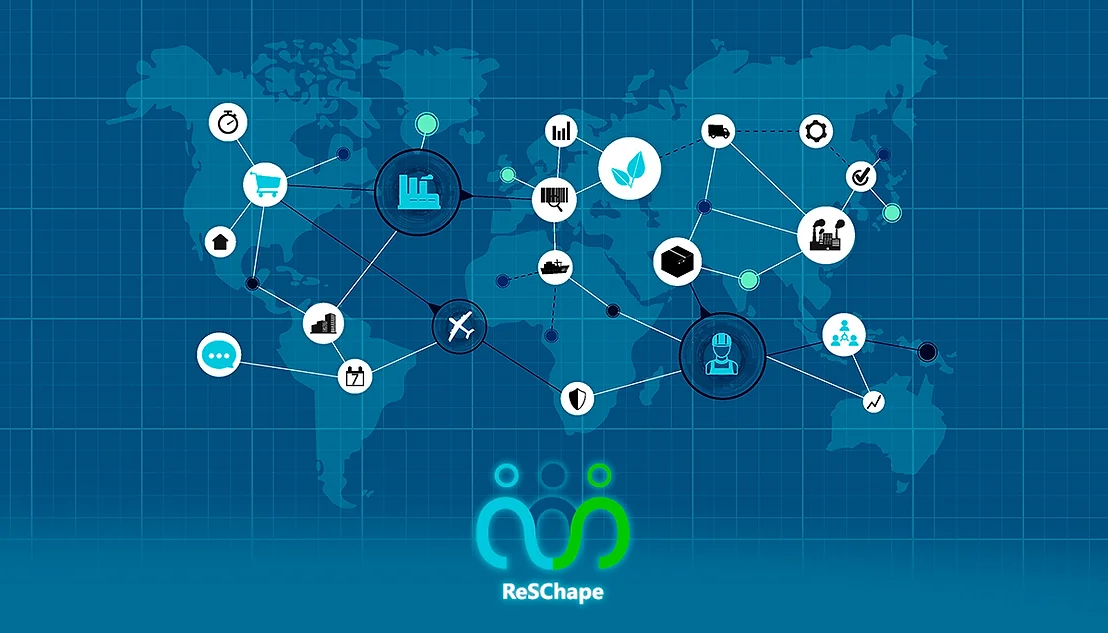As a result of the recent pandemic, global value chains have completely transformed. This has raised concerns over the ensuing social, economic and environmental trends and related impact on the way supply chains are organised. In this context, the EU-funded ReSChape project will analyse social, economic and environmental changes and disruptions, including the COVID-19 pandemic, and evaluate their impact on supply chains. New supply chain models will be proposed, aiming towards a more streamlined supply chain process to assure humans (workers, consumers and in general citizens) to be at the center of the business also thanks to new digital technologies. It will be studied how to assure a positive social impact and innovative policy scenarios will be developed with recommendations to support the future supply chains.

The aims of this proposal are:
• To analyse social, economic and environmental changes and disruptions (including covid) and evaluate their impact on SCs, identifying related challenges in terms of relationship between countries, configuration of the network, impact on employment.
• To study and propose a set of SC models for the evolution of global SC integrating strategies like resource efficient, closed-loop and humanitarian as a way to increase EU resilience and sustainability. Particular attention will be given to the role of digitalization as a way to establish new paths for social inclusion taking into consideration the needs of urban and rural areas. Some important European sectors like fashion, automotive, medical and machine tools will be analysed with case studies and survey.
• To develop Innovative tools for monitoring and assessing sectoral trade patterns and defining mechanisms to evaluate relationship of disruptions like pandemic and global value chains taking into consideration impact on employment, economic growth, incomes etc also in the long term. Moreover, it will be analysed the impact of different trade patterns, on the EU value added of sectoral and countries with a specific focus on analyzing income inequalities and proposition of decent work and social cohesion. Particular attention will be gives to gender issues and social disparities.
• To develop innovative policy scenarios with recommendations for future global value chains: policy scenarios will be based on Key horizontal issues impacting on several sectors and will provide recommendations for EU, national and sectoral strategies, policy measures and targeted actions aimed at shaping fair, inclusive and sustainable trade patterns, value and supply chains as well as production networks.


